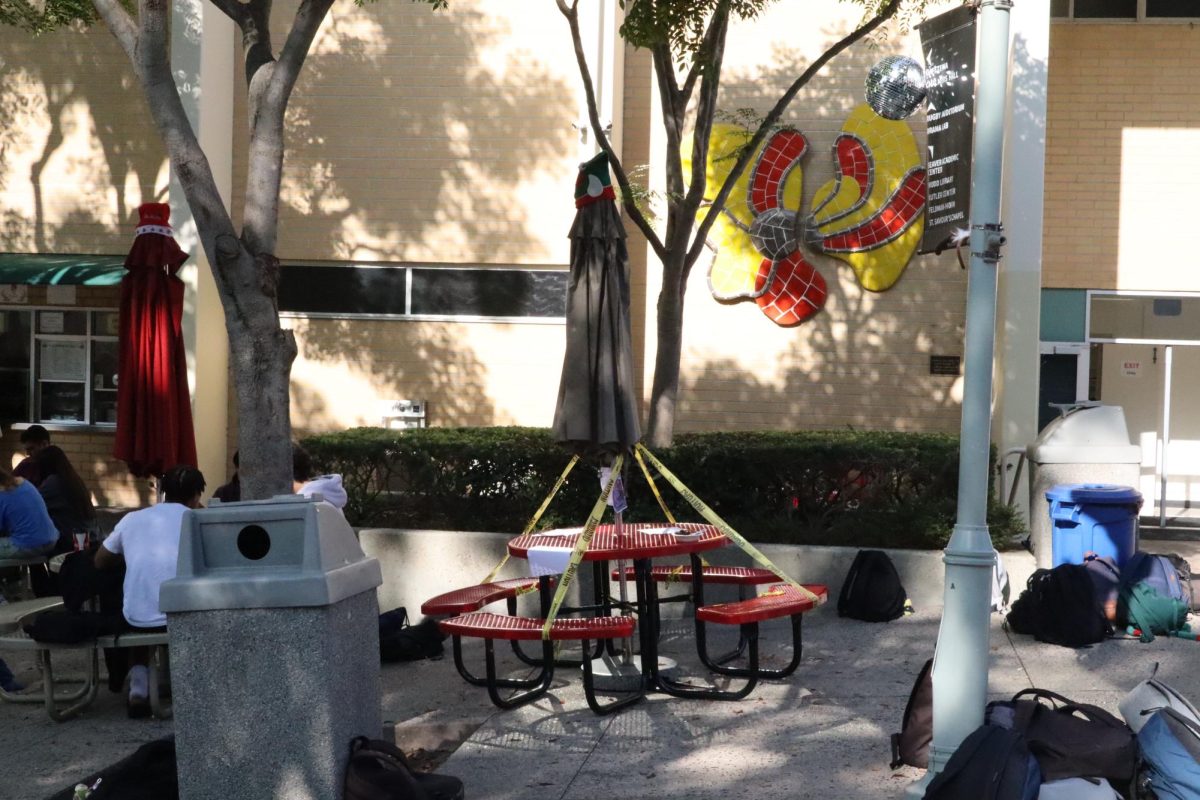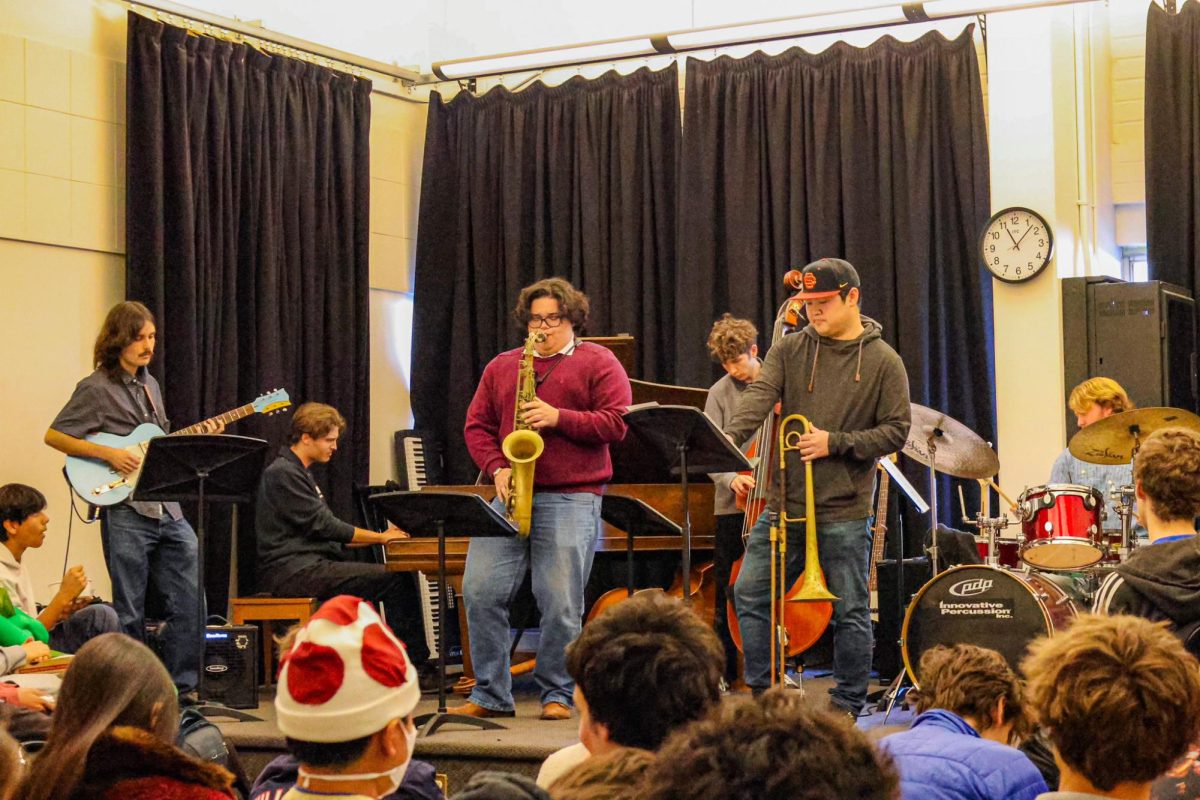
Strolling back to her car after her shift at Chevalier’s Books, a local bookstore in Larchmont Village, Mina Lavapies ’24 passed by a few bustling shops. She thought about the bookstore and reflected on a conversation she shared with her co-worker who had expressed concerns about the noticeable decline in customer traffic at the store. Though Chevalier’s Books is smaller in size, she remembered when the shop once swarmedwith visitors. Lavapies said it is now rare for more than a quarter of customers to make a purchase, even during the shop’s peak hours.
“People come in somewhat often,” Lavapies said. “We get more people on the weekends, but a lot of people come in without buying anything. We have some regular customers, but a lot of people are just wandering around Larchmont. They see the colorful display in the window and decide to take a peek. ”
Less people are reading for fun, according to the Pew Research Center. A recent study found that the number of 13-year-olds who read for fun decreased from 35% in 1984 to 17% in 2020. In fact, 30% of these 13-year-olds said they never or hardly read for fun.
Jasmine Sorgen ’25 said the amount of time she spends reading for pleasure has dwindled as she has grown older.
“I’ve noticed that I’ve been reading less [these] past few years,” Sorgen said. “I don’t have much free time anymore, and when I do have free time, it [takes] too much energy to sit down and read. I know that if I do [start reading], I’ll be into it, but it’s impossible to start.”
Ellie Borris ’25 said though he loves to read, he has found it to be too taxing of an activity to do with limited time.
“Reading had always been one of my go-to activities,” Borris said. “But these days when I’m stressed and want to take a break from homework, it feels like a lot of work to pick up a book. Reading is so gratifying, but it takes mental effort and around 10 minutes for me to get into a reading groove. Sometimes, I don’t have more than 10 minutes for a break, so it seems pointless for me to read.”
Borris said reading is not what first comes to mind when he thinks of decompressing from school.
“When I come home from school, my sister and I like to de-stress by watching ‘Gilmore Girls,’” Borris said. “It’s silly because I could be reading during that time, but when we watch together, I get to spend time with and talk to my sister. Reading requires so much focus. I would never be able to have a conversation with my sister and read at the same time.”
Savannah Mahoney ’25 said she likes to read before bed because it helps her to take her mind off her daily life.
“I normally drink some herbal tea and read a few pages of a book before bed,” Mahoney said. “I usually can’t get whatever is happening in my life out of my head when I’m trying to go to sleep at night. Reading transports me to a whole different world, and it relaxes me in a way nothing else does.”
Sorgen said reading is important for nurturing students’ writing abilities and character.
“Reading transfers into your writing skills,” Sorgen said. “[It] can define who you are and [be] informative about humanity and life.”
Lavapies said the decline in leisure reading is resulting in a general decrease in creativity.
“In general, people [who do not read] aren’t using their brains as much,” Lavapies said. “This means that people aren’t as creative and open-minded which limits the creative and understanding capabilities of people as a whole.”
Reading for pleasure can minimize grammar mistakes in people’s writing, according to the University of Waterloo. Reading can also result in expansion of vocabulary, diversification of knowledge and increased focus and critical thinking skills.
Upper School English Teacher Lucas Gonzalez said he sees the effects of this decline in reading as students’ language has become increasingly casual.
“I’ve seen the range of lexicon change from what’s considered a more formal style of writing to a more colloquial and open style,” Gonzalez said.
Gonzalez said the decline in reading for pleasure can be attributed to people seeking less taxing stress relievers.
“I remember watching a video where they interviewed high school students about how many books they read [for pleasure],” Gonzalez said. “I think the average was between zero and one book that [students] actually read cover to cover. My experience tells me that that’s not the case at Harvard-Westlake, but I do think that we live in a world with more distractions [than in previous years]. It requires a certain amount of attention to read horizontally.”
Despite this, Gonzalez said he is trying to prioritize reading because he is someone who appreciates literature.
“I feel like the amount of time that I spend on my phone doesn’t always help my brain for tasks that require more attention,” Gonzalez said. “That’s a battle that I’m always having: making sure that I stay true to my values as somebody who loves to read and is nourished by reading [as well as] somebody who enjoys the distraction of a screen.”
While he thinks reading can often be a challenge, Gonzalez said it is one of the more rewarding aspects of his life.
“Reading always occupies the mind in a way that feels stimulating,” Gonzalez said. “I know that the most satisfying insights and emotional experiences come from reading. Because we live busy lives it is just a bit easier to fall back on something that is less work to process.”
Borris said though he prefers spending time reading over different mindless activities, such as spending time on social media, it is often more worthwhile to enjoy life firsthand.
“I never feel bad about not reading unless I’m doing something obviously useless like scrolling through TikTok,” Borris said. “But I never really feel bad if I’m going to the beach or hanging out with my friends instead of reading. Reading is nice to get insights into new situations, but it is a lot more gratifying to live through those different types of character-building [experiences] firsthand.”



























